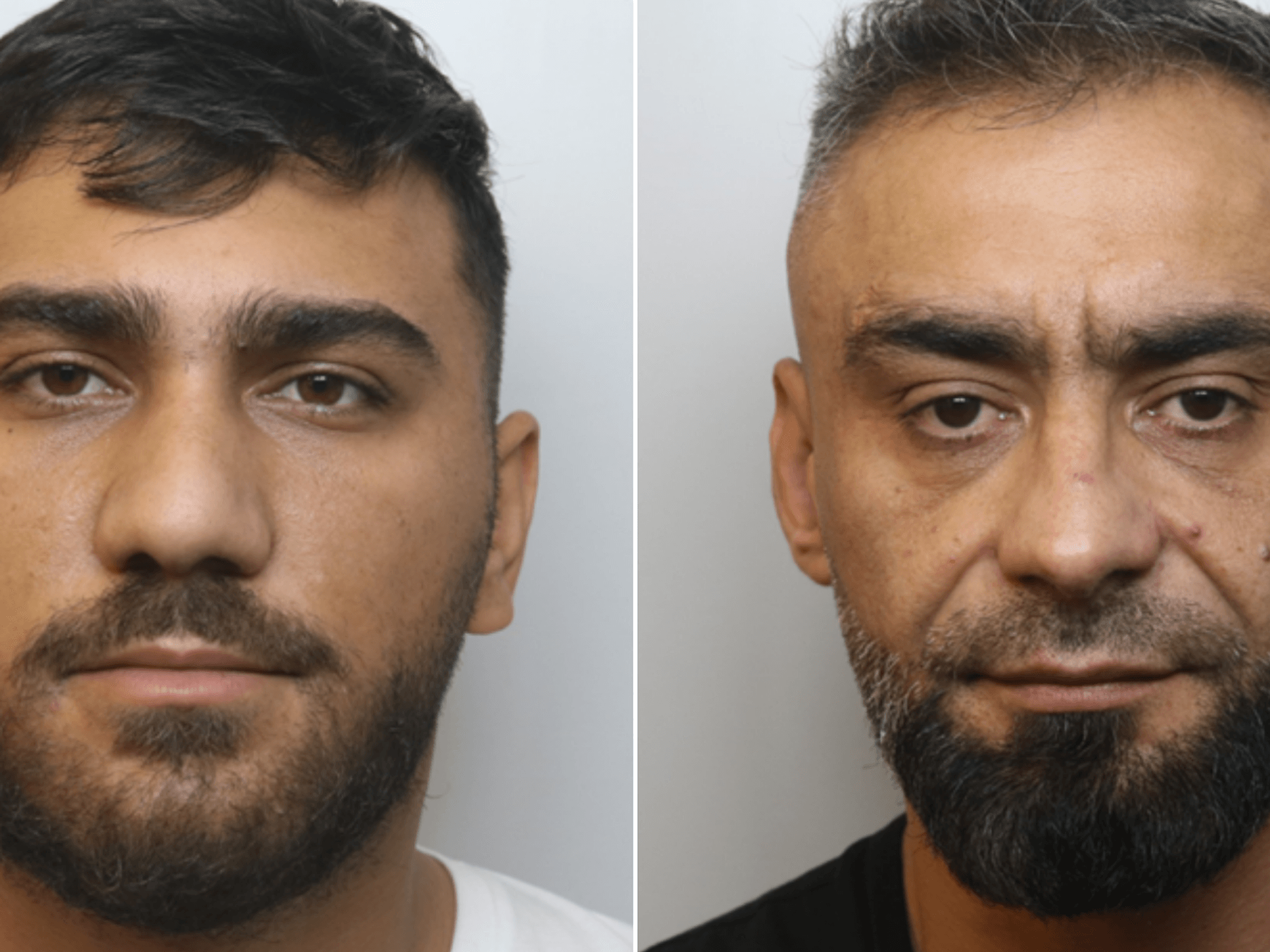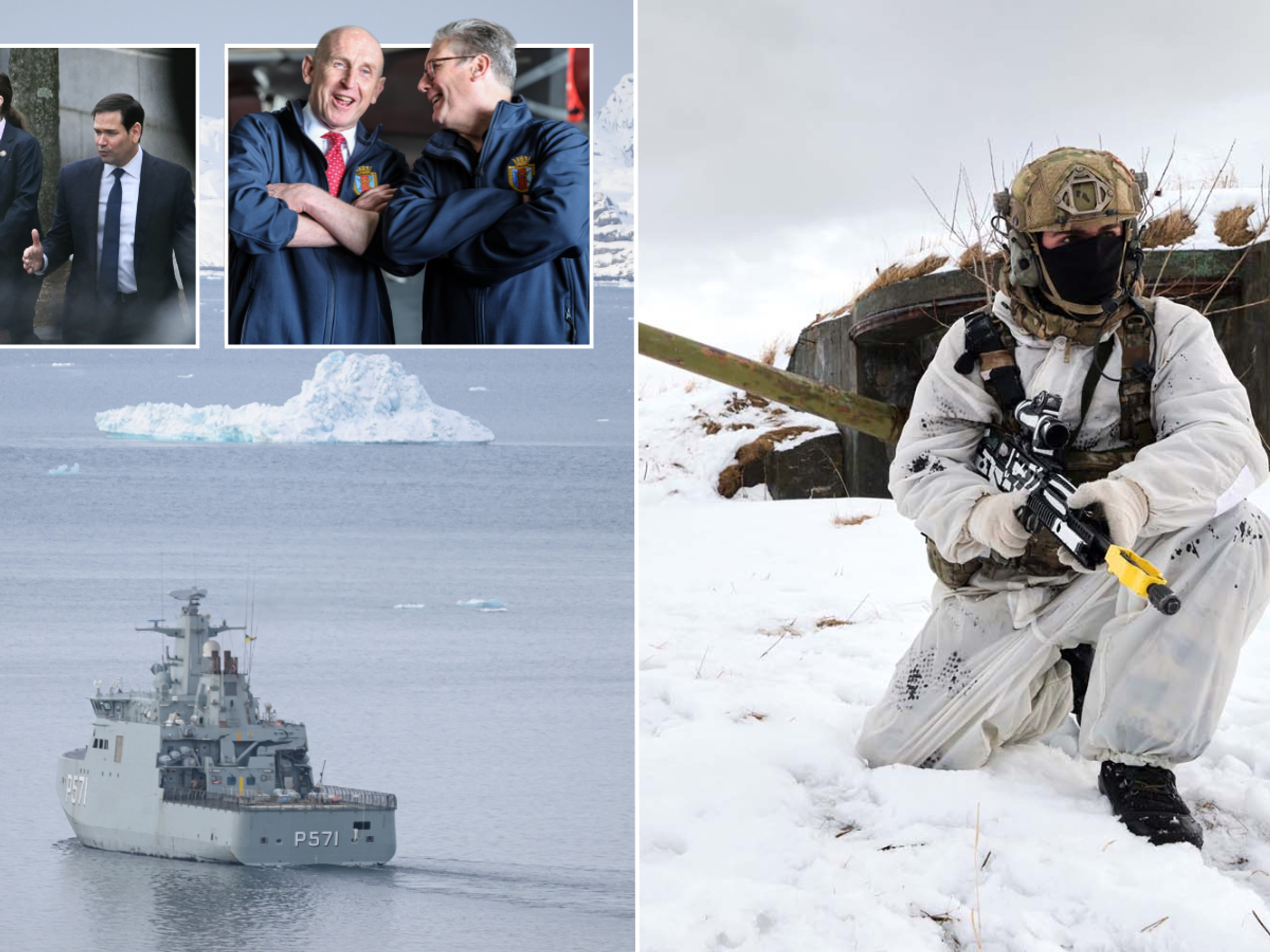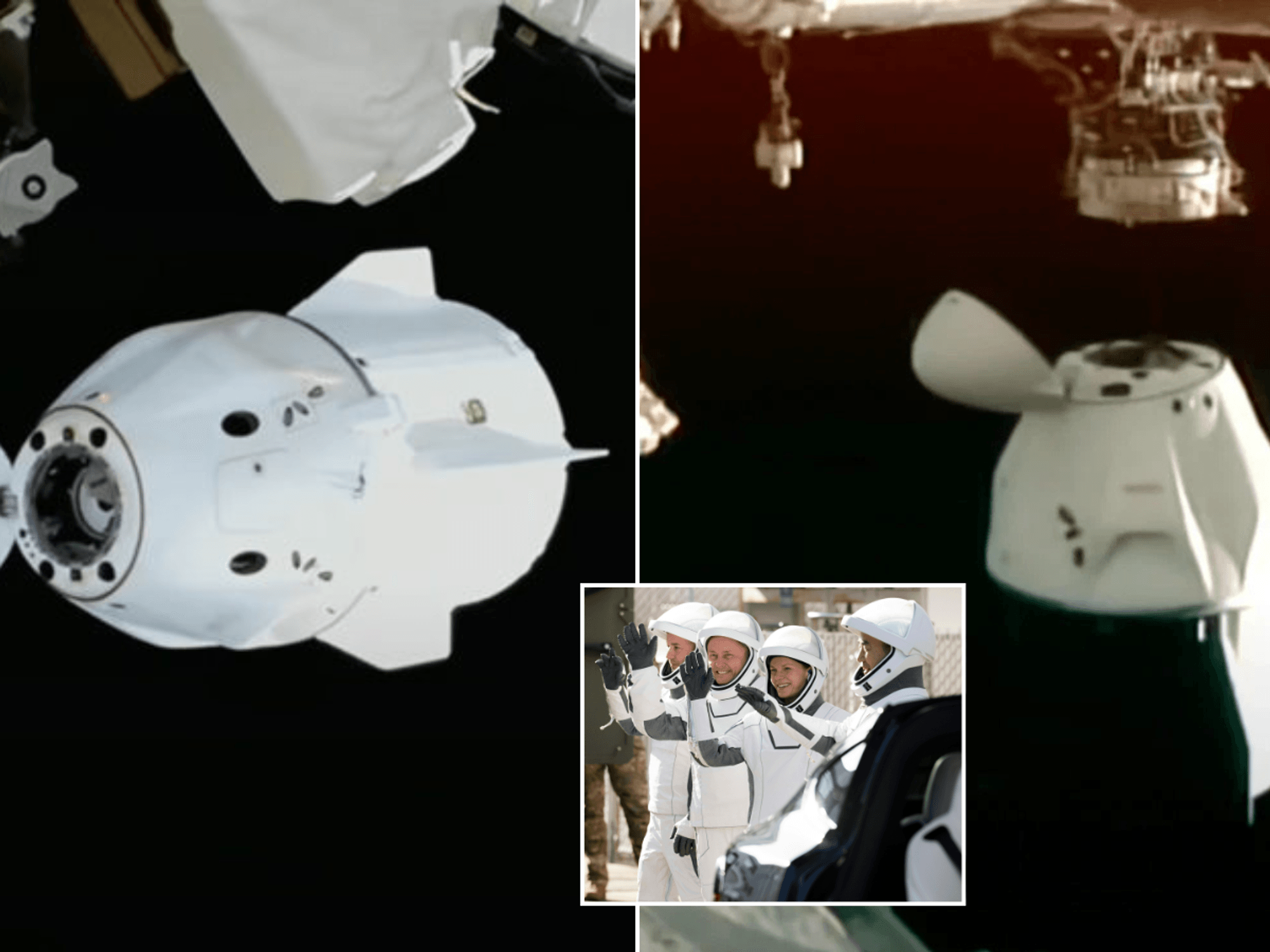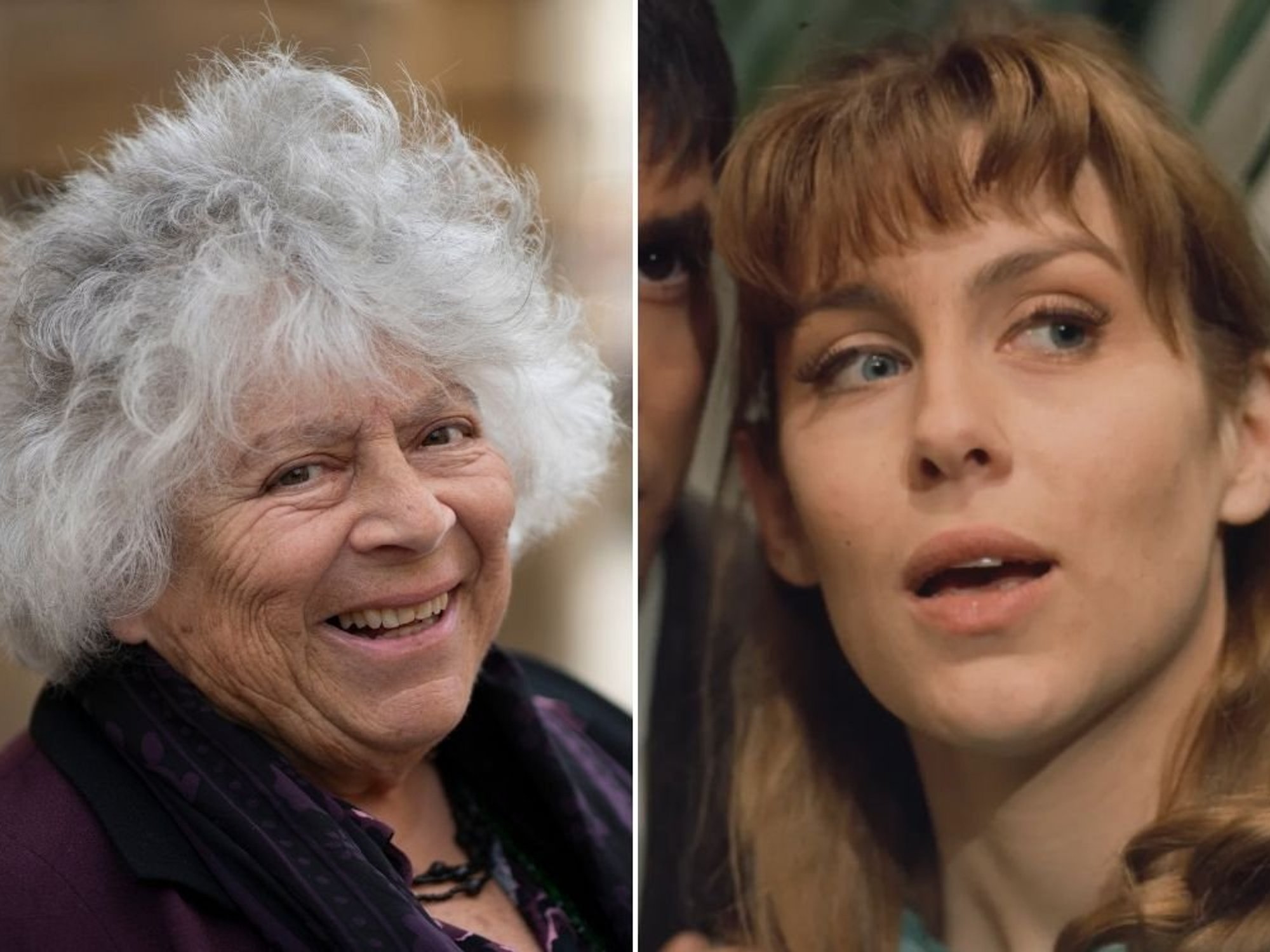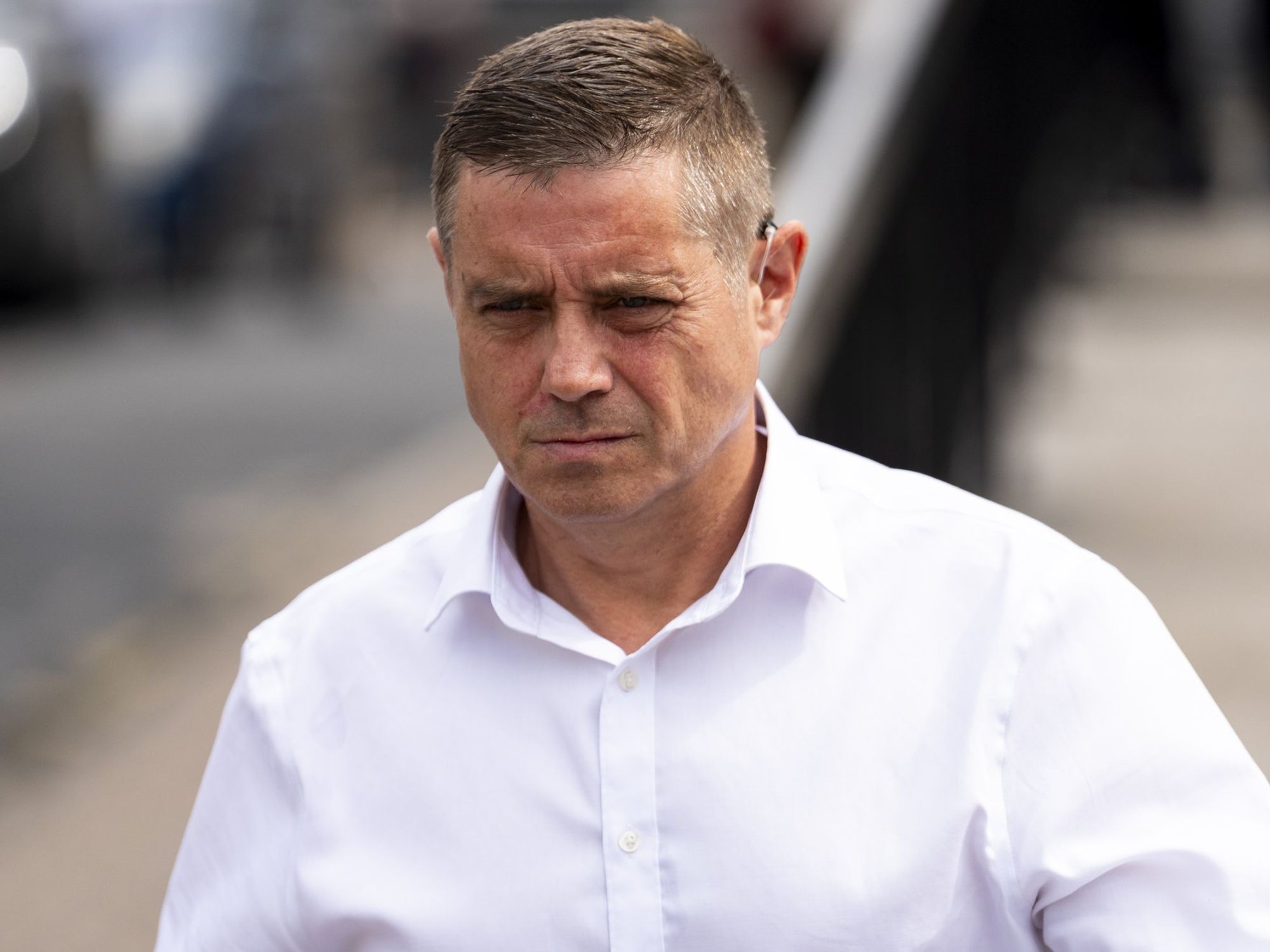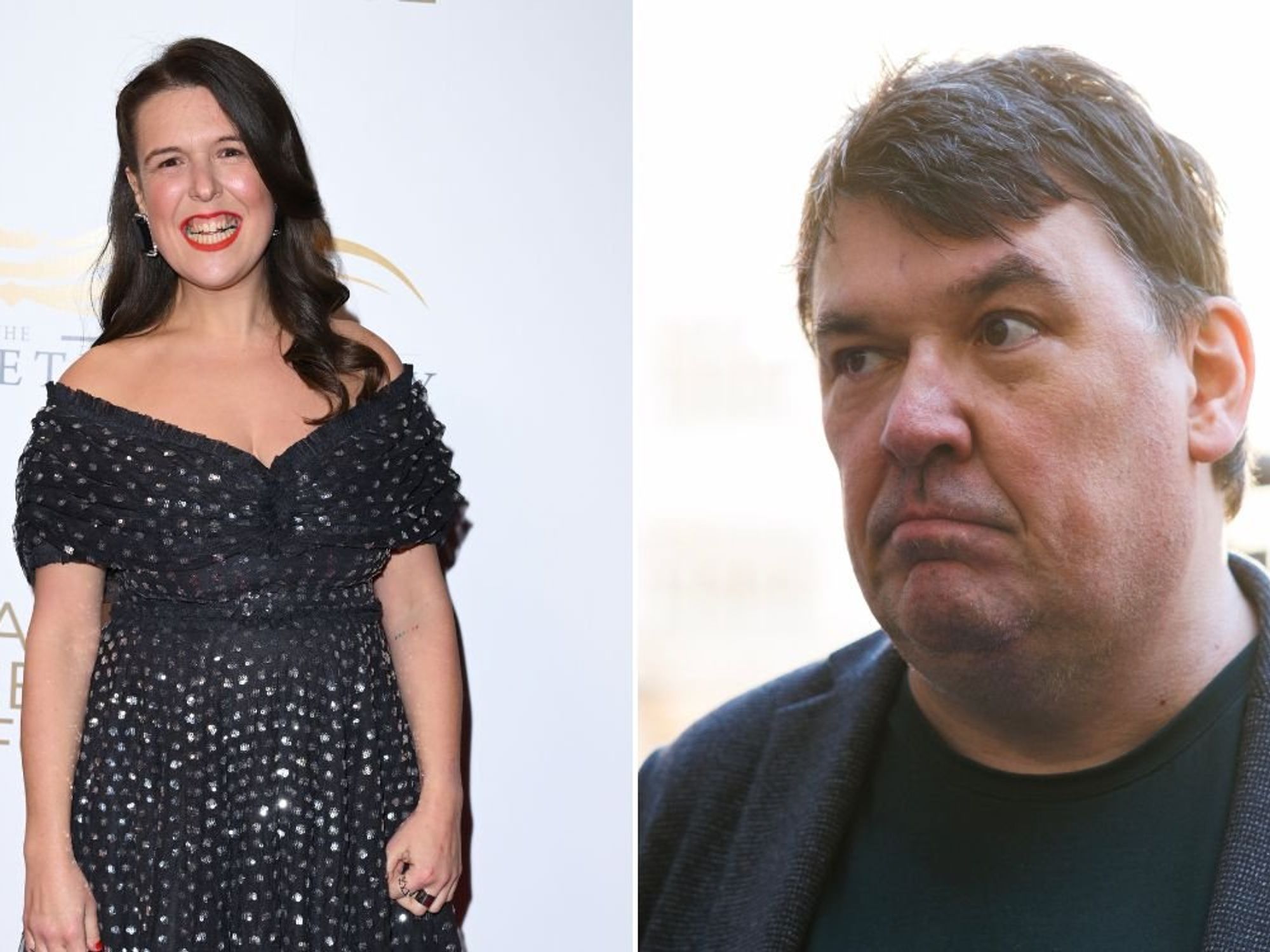Neil Oliver: We are kept in a permanent state of fear and uncertainty – one crisis after another

'People still write to me most days, often to air their fears about what they see as nothing less than an existential battle between good and evil'
Don't Miss
Most Read
Sometimes I feel as though I’ve got a walk on part in the first of the Omen films. My world feels so shadowed now by creeping malevolence – which is to say ill-will and hatred – I barely rule out hiding in my house and papering over the windows.
People still write to me most days, often to air their fears about what they see as nothing less than an existential battle between good and evil. More and more I am inclined to believe them.
Loud are the calls for us to go as far as necessary, all the way, until Putin and his forces are defeated or dead. More millions of refugees are displaced from all they have known and on the move in hopes of encountering the kindness of strangers.
There is not just war in Ukraine, there is also war in Myanmar, Afghanistan, Yemen, Syria, Iraq, in many African countries including Ethiopia, Somalia, Sudan, Nigeria, Congo, Mahgreb, Mali and more besides. I have only listed some of the most obvious ongoing horrors.
Some of the fighting in those places is decades old, but mostly we don’t watch anymore because our media don’t show it to us. Sons inherit the hatreds of their fathers. Daughters bury the bodies of their children, just as other mothers buried their children in their own time.
I am ashamed to admit I don’t think enough about the suffering of others. I am unforgivably aware that unforgivable wrong and despicable cruelty is endured, right now this very moment, by millions of people around the world, while I shop online and keep my head bent over my smart phone.
I will never be able to atone for what I turn a blind eye and a deaf ear to now – and have done all of my adult life.
It might have been Plato who said,
“Only the dead have seen the end of war.”
Whoever it was, we have known the truth of the statement for a long time.
War is always with us.
Since the outbreak of war in 1914, what we called the Great War until we learned we had to give them numbers, there have been precious few days without organised armed conflict somewhere.
Malevolence and hatred are nothing new either, of course they aren’t. But just as war is growing bolder yet again – talk of a new world war, indeed – so the practice of malevolent behaviour, and its attendant expressions of hatred is on the rise again as well. Most sinister, hatred and calls for death are being normalised in the online world, even actively encouraged.
Facebook and Instagram announced last week they would be allowing users to call for death and violence towards Russian soldiers. Normally so-called hate speech is banned from such platforms but the American parent company Meta have relaxed their hate speech policy in a dozen countries in Eastern Europe and Caucasus – so long as the hatred is directed only at Russian soldiers.
“Death to the Russian invaders” it seems, would be ok by Meta.
I only have heart-felt sympathy for any man, woman or child ready to fight to the death in the face of an invader. The thought of my home, my children’s home, being attacked and destroyed, their peaceful world torn apart, the thought of harm inflicted upon them by strangers from elsewhere, fills me with nothing less than murderous rage.
I understand rage and hate because I feel them too. But I am also ashamed of my hating and so I try always to keep it inside. More and more, every day now, in fact, I think about Aleksandr Solzhenitysn’s quote about the line separating good and evil passing not through states, nor between classes, nor between political parties either – but right through every human heart, and all human hearts. I have quoted that line on here before, but only because I think it is one of the most important lines ever written.
I feel hate – and so I know I have it in me to do terrible things, as does every single one of us. We also have the proven capacity to watch and know that others are doing terrible things on our behalf, because we are too concerned about self-preservation to do those things ourselves.
If you know and accept as much, that you are potentially dangerous, you might just keep the hatred in check for a whole lifetime. Anyone believing they are only good, righteous even, with love hearts and platitudes in their Twitter bios as though to prove it, is definitely worth keeping an eye on.
Meta have, via their spokesman Nick Clegg, former leader of the Lib Dems, stated they will not condone, on their platforms, specific threats of violence towards Russian civilians. We would be naïve however, to imagine that expressions of violence, condoned or not, but visible, will necessarily remain contained within the online world.
Actual violence towards innocent, law-abiding Russians, Russian speakers, even just people with Russian names or accents, surely slides ever closer. I refuse to hate random Russian people just for being Russian. That is racism, as I have understood racism.
On their homepage, Meta’s mission in the world is summarised as,
“Give people the power to build community and bring the world closer together.”
I honestly do not see how both ideas – allowing for the circulation of calls for death and violence and a pledge to bring the world closer together – can exist in the same moral universe.
Meta – and so Facebook and Instagram – are not elected by anyone. Meta is a company that exists to make money. They do, however, have almost total control over what passes for the public square, where we talk and air our views.
What is deemed right and wrong when it comes to expressing our thoughts publicly is now the exclusive preserve of the unelected technocrats of Meta. Now they have taken it upon themselves to decide who might be hated, whose deaths might be called for. That is quite some right to assume. Just because you approve their choice of the condemned today, doesn’t mean you’ll like it tomorrow. It might BE you tomorrow.
We are being manipulated as never before in history. Even the medieval Church could barely dream of such control over how people think and act. In Scotland, first minister Nicola Sturgeon apologised last week to witches tormented and murdered hundreds of years ago.
Her timing is interesting when we are poked and prodded into one witch hunt after another right now in the present.
These are dark days, and they will likely get darker for a while yet – literally darker, and colder, for those who won’t be able to heat their homes on account of the surging prices of gas and oil, sources of energy upon which we will depend for decades at least.
We are kept in a permanent state of fear and uncertainty – one crisis after another, each one bigger, more threatening and beyond our control than the last.
The Covid crisis has vanished like morning mist. Just a few weeks ago the message was still that we had to sacrifice freedom and the right to work and be educated in order to save Granny. Now granny is to be left to turn into a popsicle in her own, unheated home, while we look the other way.
But while Covid has been put out of sight, its consequences have not. Our economy was devastated and a cost-of-living crisis utterly inevitable long before Putin put his missiles in the air over Ukraine.
The printing of money – oceans of notes – had already and unavoidably sown the seeds of disaster for our currencies, for inflation such as has not been seen in lifetimes. It be worth pointing out that in amongst all of this we have been – and the European Union was – still buying tens of billions of pounds worth of gas, oil and other commodities from Putin’s Russia, so that we are effectively financing both sides in the war. I have begun to wonder if Hypocrisy and Political Expediency aren’t the fifth and sixth horses of Apocalypse 2.0.
Our governments’ handling of Covid sowed the seeds of something else, and that was the division of society into two tribes, one large and one small. Hatred was whipped up by media and by government. Covidiots, anti-vaxxers, granny-killers.
Malevolent hatred is out of the shadows now.
In his novel of a Dystopian future, 1984, George Orwell wrote about the Two-minutes hate – during which citizens were invited daily to vent their hatred towards whomever the government said they should.
He wrote:
“The horrible thing about the Two Minutes Hate was not that one was obliged to act a part, but that it was impossible to avoid joining in. Within thirty seconds any pretence was always unnecessary.
A hideous ecstasy of fear and vindictiveness, a desire to kill, to torture, to smash faces in with a sledge hammer, seemed to flow through the whole group of people like an electric current, turning one even against one's will into a grimacing, screaming lunatic. And yet the rage that one felt was an abstract, undirected emotion which could be switched from one object to another like the flame of a blow-lamp.”
We have already learned what we must say in order to be safe from the disapproval, or worse, of wider society. We nudge closer and closer to what is called compelled speech – when it is not enough to think the supposedly right thing – that supposedly right thing must be broadcast for all to hear and see. Failure to say, out loud, the approved thought, has been made harder and harder. I wonder if compelled hate can be so very far away.






